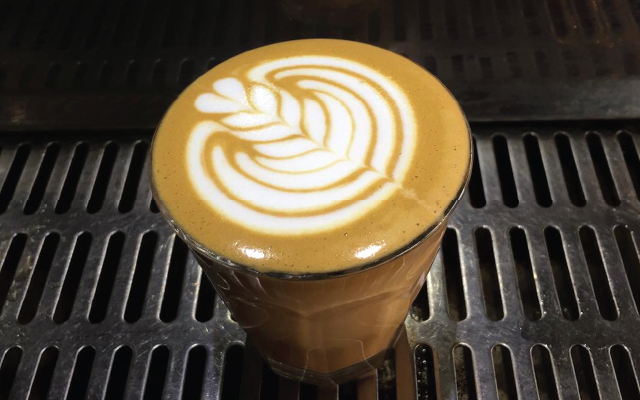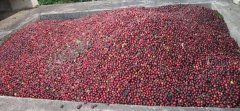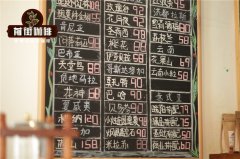Why more sleepy coffee after drinking coffee more sleepy coffee drinking more sleepy six factors coffee diuretic and toxic?
Do people usually drink coffee? I believe that many of the workers in this room live on coffee. Give up soy milk in the morning and use coffee to wake yourself up when you want to go back to sleep. But sometimes no matter how much you drink, the eyelids or everyone, or even refreshing into hypnosis. Why is it useless to drink coffee, but more sleepy? Will you, too? Actually, it's because of drinking the wrong coffee! If you drink the wrong coffee, you must be thinking about how to drink it wrong. Coffee can affect your body in many ways, and its impact on you varies from person to person. Here are six factors.

Coffee blocks the effect of adenosine
When you drink coffee, your stomach and small intestine absorb caffeine and redistribute it to multiple parts of your body, including your brain, through your blood. When caffeine reaches your brain, it adheres to your adenosine receptor.
Now adenosine helps you feel sleepy and controls your sleep-awakening cycle. When caffeine binds to your adenosine receptor, your brain doesn't process its adenosine, but that doesn't mean it stops producing it. So once caffeine is exhausted, adenosine accumulates on your brain's receptors, making you tired.
Coffee is a diuretic
Simply put, drinking a cup of coffee may cause you to use the bathroom more frequently. If you drink the right amount of coffee (two or three cups), you may not notice anything, but if you drink four or more cups of coffee, you may find yourself running to the bathroom.
If you lose more fluid than you drink, you may feel tired because dehydration works. Other symptoms of dehydration include thirst, dry mouth, dizziness, dry skin and insufficient sweating.
However, coffee may not actually dehydrate you that much. As Harvard Medical explains, although caffeinated drinks may increase the number of times you go to the bathroom, the water in the drinks can still affect your overall liquid consumption.
To prevent dehydration, drink plenty of water and eat hydrated foods, such as fruits and vegetables. When you are exercising, getting sick or experiencing hot, humid or cold weather, you may need to drink more water than usual. If your symptoms of dehydration include fainting, rapid heart rate, shortness of breath, loss of consciousness or shock, consult a doctor immediately.
This is a sweet drink, not coffee.

If you drink coffee with whipped cream, honey, syrup or plain old sugar, you may feel tired if your blood sugar soars.
When your body consumes more sugar than ever before, it produces insulin to counteract it. However, insulin can also cause your blood sugar levels to drop-your blood sugar, also known as blood sugar, is your body's main source of energy.
Therefore, as your blood sugar level drops, you will feel lack of energy, which will make you feel tired. You may also feel hungry, irritable, anxious, sweating, dizzy, or nervous when the sugar collapses.
It may also be more than just the sugar in coffee. If you have a dessert, such as biscuits or a cup of orange juice with coffee in the morning (which contains as much sugar as five or six oranges), you may feel a surge in sugar and then drop. It's easy to drink sugary drinks because they don't fill you up like food.
If you experience a sugar collapse, try eating some protein to balance your blood sugar levels.
This is mold contamination, not coffee.
It's disgusting to think about it, but the reason why you may feel tired after drinking a cup of coffee is mold contamination. A 2003 National Institutes of Health study examined 60 samples of unroasted raw coffee beans (called raw coffee) from Brazil.
"almost all samples (91.7%) are contaminated with mold," the study said.
Other NIH studies also examined coffee samples for mycotoxins, products of microfungi. The mycotoxin aflatoxin B1 ochratoxin A was found in the sample; however, the concentration of mycotoxin was considered "acceptable under legal restrictions".
And 2013 studies have linked exposure to mycotoxins to chronic fatigue. Those who have chronic fatigue will feel tired even after rest and may have sleep problems. Other symptoms include dizziness and difficulty thinking or concentrating.
Caffeine affects stress
Stress can keep you awake all night. Stress insomnia. Know. However, stress can make you feel tired or tired during the day. If you feel stressed, you may need to sleep to deal with the experience while consolidating emotional memories during sleep.
We feel stressed cortisol in response to stress hormones, indicating that our bodies are highly alert to perceived stressors. Another component of our body's stress response is epinephrine, commonly known as epinephrine. When adrenaline flows through the body, the heart speeds up and our breathing speeds up to increase our alertness.
Now, a 2017 study found that caffeine intake doubled adrenaline and cortisol levels, regardless of whether subjects consumed caffeine regularly or not. This means that you will feel stressed after drinking coffee, even if you drink the same amount of coffee every day. Once the initial stress response is over, your body may turn the stress into drowsiness.
Caffeine withdrawal symptoms
If you drink coffee regularly and then stop suddenly, you may feel the effects of caffeine withdrawal. Drowsiness is a symptom of caffeine withdrawal, accompanied by headaches, nausea, irritability and inability to concentrate. You can feel abstinent within 12 to 24 hours of your last caffeine intake. Depending on how much caffeine you regularly consume, symptoms may only last for a few days or weeks.
If you want to quit coffee and avoid caffeine withdrawal symptoms, please try a step-by-step approach. Reduce your intake by 4 cups every two to three days, or switch to green tea to reduce caffeine. Keep reducing until you stop consuming caffeine.
Important Notice :
前街咖啡 FrontStreet Coffee has moved to new addredd:
FrontStreet Coffee Address: 315,Donghua East Road,GuangZhou
Tel:020 38364473
- Prev

Effect of High temperature and drought in Brazil on Coffee Bean Agricultural products; World Coffee Bean production is on a sharp decline
Coffee prices soar after poor harvests and unmet demand as Brazil suffers from the worst drought in nearly 20 years, global consumption will exceed production this year as global coffee prices continue to rise and could push up the cost of breakfast tables as Brazil, the world's largest coffee producer, faces one of the worst droughts in nearly a century. Arabica
- Next

How long is caffeine effective after drinking coffee? what effect does caffeine have on the human body? what to do if you drink too much coffee?
Frequently asked question: how long does coffee work? You are likely to feel the effect of caffeine for 10 minutes, and the amount of caffeine circulating in the blood reaches a peak of 30 to 90 minutes after consumption. Although you may stop feeling the effects of caffeine metabolism within hours, it can take hours for caffeine to leave your body completely. Doesn't caffeine affect you? If
Related
- Detailed explanation of Jadeite planting Land in Panamanian Jadeite Manor introduction to the grading system of Jadeite competitive bidding, Red bid, Green bid and Rose Summer
- Story of Coffee planting in Brenka region of Costa Rica Stonehenge Manor anaerobic heavy honey treatment of flavor mouth
- What's on the barrel of Blue Mountain Coffee beans?
- Can American coffee also pull flowers? How to use hot American style to pull out a good-looking pattern?
- Can you make a cold extract with coffee beans? What is the right proportion for cold-extracted coffee formula?
- Indonesian PWN Gold Mandrine Coffee Origin Features Flavor How to Chong? Mandolin coffee is American.
- A brief introduction to the flavor characteristics of Brazilian yellow bourbon coffee beans
- What is the effect of different water quality on the flavor of cold-extracted coffee? What kind of water is best for brewing coffee?
- Why do you think of Rose Summer whenever you mention Panamanian coffee?
- Introduction to the characteristics of authentic blue mountain coffee bean producing areas? What is the CIB Coffee Authority in Jamaica?

